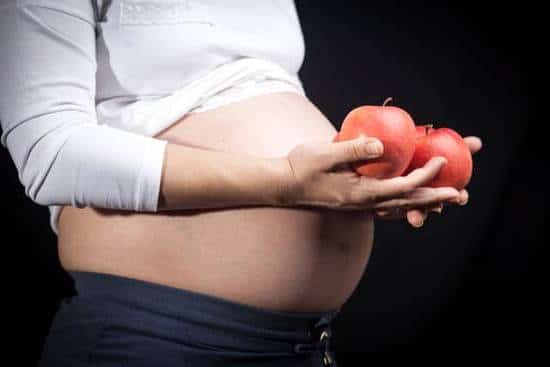Pregnancy is a crucial time when a woman’s nutritional needs are heightened to support both her own health and the development of her growing baby. The significance of proper nutrition during pregnancy cannot be overstated, as it directly impacts the well-being of both mother and child.
This article will explore the various nutritional issues that expecting mothers may encounter, along with the potential consequences of inadequate dietary intake. Additionally, we will delve into recommended guidelines for maintaining optimal nutritional health during pregnancy, and provide insight on how to address any concerns with a healthcare professional.
During pregnancy, women must pay particular attention to their diet in order to ensure they are meeting the increased demands for essential nutrients. Failing to do so can lead to a host of complications for both the mother and developing fetus. In this section, we will examine common nutritional deficiencies in pregnant women, shedding light on the importance of identifying and addressing these issues promptly.
Furthermore, we will discuss how poor nutrition can negatively impact fetal development, stressing the correlation between maternal diet and long-term health outcomes for children. It is vital for expectant mothers to understand the potential risks associated with overeating or undereating during pregnancy, as improper food intake can have detrimental effects on both short-term and long-term health.
By adhering to recommended nutritional guidelines and seeking professional guidance when needed, expecting mothers can cultivate a supportive environment for their baby’s growth and development.
Understanding the Importance of Nutritional Health for Expecting Mothers
Pregnancy is a crucial time in a woman’s life, and maintaining proper nutritional health is essential for both the mother and the developing baby. The body goes through numerous changes during pregnancy, and these changes require an increase in certain nutrients to support the growing fetus. Proper nutrition during pregnancy can help reduce the risk of complications and ensure the healthy development of the baby.
Key Nutrients Needed During Pregnancy
During pregnancy, it is important for women to consume an adequate amount of folic acid, iron, calcium, protein, and other essential vitamins and minerals. Folic acid is crucial in preventing neural tube defects in the developing baby, while iron helps prevent anemia in both the mother and child. Calcium is necessary for bone development, and protein is essential for the growth of tissues and organs.
The Link Between Nutrition and Fetal Development
Adequate nutrition during pregnancy is directly linked to fetal development. Poor nutrition can lead to low birth weight, preterm birth, and an increased risk of birth defects. It can also impact the baby’s cognitive development later in life. This underscores the importance of paying close attention to one’s diet during pregnancy to ensure optimal health outcomes for both mother and child.
Seeking Professional Guidance
To address nutritional issues during pregnancy, it is important for expecting mothers to seek guidance from healthcare professionals such as obstetricians or dietitians. These professionals can provide personalized recommendations based on individual needs, as well as monitor any potential issues that may arise throughout pregnancy. Seeking professional guidance can help expecting mothers navigate any challenges related to nutritional health during this significant time in their lives.
Common Nutritional Deficiencies in Pregnant Women
Iron Deficiency
is one of the most prevalent issues during pregnancy, as pregnant women need nearly double the amount of iron compared to non-pregnant women. Iron is essential for preventing anemia and ensuring that the baby receives an adequate supply of oxygen.
Nutritional Deficiency in Pregnant Women Is Folic Acid
This B vitamin is crucial for preventing neural tube defects and supporting the development of the baby’s brain and spinal cord. Inadequate levels of folic acid can result in serious birth defects, making it a vital nutrient for expecting mothers to consume through diet or supplements.
Calcium Deficiencies
, as the growing fetus requires this mineral for bone development. If a mother’s calcium intake is insufficient, her body may pull calcium from her own bones to supply the needs of the baby, increasing her risk of osteoporosis later in life. These are just a few examples of nutritional issues that commonly arise during pregnancy, highlighting the importance of addressing these deficiencies through proper diet and supplementation under the guidance of a healthcare professional.
The Impact of Poor Nutrition on Fetal Development
During pregnancy, it is essential for women to maintain a well-balanced and nutritious diet in order to support the healthy development of their growing fetus. Poor nutrition during pregnancy can have significant effects on the baby’s overall growth and development. Here are some key nutritional issues that can impact fetal development:
- 1. Inadequate intake of essential nutrients such as folic acid, iron, calcium, and omega-3 fatty acids
- 2. Excessive consumption of unhealthy processed foods high in sugar, salt, and unhealthy fats
- 3. Insufficient calorie intake or inability to gain appropriate weight during pregnancy
These nutritional issues can lead to a range of complications that affect the baby’s health and development, including low birth weight, preterm birth, neural tube defects, impaired brain development, and long-term health problems later in life.
It is crucial for expecting mothers to be mindful of their dietary choices and address any nutritional deficiencies with the guidance of a healthcare professional. By understanding the potential impact of poor nutrition on fetal development, women can take proactive steps to ensure they are providing their baby with the best possible start in life.
Recommended Nutritional Guidelines for Pregnant Women
In order to support optimal fetal development, pregnant women should aim to follow recommended nutritional guidelines that include a variety of nutrient-dense foods necessary for both maternal and fetal health:
- 1. Consume plenty of fruits and vegetables rich in vitamins, minerals, and antioxidants
- 2. Incorporate whole grains such as brown rice, quinoa, and oats for fiber and essential nutrients
- 3. Choose lean sources of protein including poultry, fish, tofu, beans, and legumes
- 4. Include dairy products or fortified plant-based alternatives for calcium and vitamin D
- 5. Stay hydrated with plenty of water throughout the day
Following these guidelines can help pregnant women meet their nutritional needs while supporting healthy fetal growth and development. By prioritizing proper nutrition during pregnancy, expectant mothers can positively influence their baby’s long-term health outcomes while promoting their own well-being during this crucial time.
Recommended Nutritional Guidelines for Pregnant Women
Pregnancy is a time of increased nutritional needs, as the body must support the growth and development of a baby. It is important for expectant mothers to be mindful of their diet in order to ensure optimal health for themselves and their child. Following recommended nutritional guidelines during pregnancy can help prevent birth defects, support the mother’s health, and contribute to a healthy delivery.
According to the American College of Obstetricians and Gynecologists (ACOG), pregnant women should aim for a well-balanced diet that includes a variety of nutrient-rich foods. This typically involves consuming a mix of fruits, vegetables, whole grains, lean proteins, and healthy fats. Nutritional supplements like prenatal vitamins may also be recommended to ensure that both the mother and baby are getting adequate amounts of essential nutrients.
In addition to focusing on specific food groups, pregnant women should pay attention to their caloric intake. While it is important to consume additional calories during pregnancy, overeating can lead to excessive weight gain which could potentially pose risks for both the mother and baby.
On the other hand, undereating can result in nutritional deficiencies that may negatively impact fetal development. Therefore, it is crucial for expectant mothers to work with their healthcare provider or a registered dietitian to determine an appropriate caloric intake based on their individual needs.
| Nutritional Guidelines | Recommendation |
|---|---|
| Food Groups | Aim for a well-balanced diet that includes fruits, vegetables, whole grains, lean proteins, and healthy fats. |
| Supplements | Consider taking prenatal vitamins recommended by healthcare providers. |
| Caloric Intake | Work with healthcare professionals to determine an appropriate caloric intake during pregnancy. |
Foods to Include in a Pregnancy Diet for Optimal Health
During pregnancy, it is crucial for expecting mothers to consume a well-balanced diet that provides the necessary nutrients for both the mother and the developing fetus. A balanced diet during pregnancy helps ensure proper fetal growth and development and reduces the risk of complications during pregnancy, as well as birth defects.
One essential nutrient for pregnant women is folic acid, which plays a vital role in preventing birth defects of the brain and spine. Foods rich in folic acid include leafy greens, citrus fruits, beans, and fortified cereals. Another important nutrient is iron, which helps prevent anemia in both the mother and baby. Iron-rich foods such as lean red meat, poultry, fish, dried fruit, and beans should be included in a pregnancy diet.
In addition to folic acid and iron, pregnant women should also focus on consuming foods high in calcium for bone development and protein for muscle growth. It’s important to consume a variety of fruits and vegetables to ensure an adequate intake of vitamins and minerals essential for both maternal and fetal health.
| Nutrient | Food Sources |
|---|---|
| Folic Acid | Leafy greens, citrus fruits, beans, fortified cereals |
| Iron | Lean red meat, poultry, fish, dried fruit, beans |
| Calcium | Dairy products (milk, cheese), fortified plant-based milk (soy or almond milk), leafy greens (kale), tofu |
| Protein | Poultry, fish, eggs dairy products (milk yogurt), legumes (beans lentils) |
Potential Risks of Overeating or Undereating During Pregnancy
During pregnancy, it’s essential for women to be mindful of their nutritional intake in order to support the healthy development of the baby. Overeating or undereating can both pose risks to the mother and her unborn child, making it crucial for expecting mothers to maintain a balanced and nutritious diet.
Overeating during pregnancy can lead to excessive weight gain, which may increase the risk of developing gestational diabetes, high blood pressure, and complications during labor and delivery. Additionally, it can also contribute to the baby being larger than average, known as macrosomia, which may result in birth injuries or the need for a cesarean delivery.
On the other hand, undereating during pregnancy can lead to nutritional deficiencies that can negatively impact both the mother and baby. Inadequate intake of essential nutrients like folic acid, iron, and calcium can lead to an increased risk of birth defects, low birth weight, and developmental problems in the baby. For the mother, insufficient nutrition can result in fatigue, weakened immune system, and potential long-term health issues.
To avoid these potential risks of overeating or undereating during pregnancy, it is important for expectant mothers to work closely with their healthcare professional. A registered dietitian or healthcare provider can offer personalized guidance on maintaining a balanced diet that meets both the mother’s and baby’s nutritional needs throughout pregnancy. By seeking professional support, pregnant women can ensure they are making informed choices about their nutrition for a healthy pregnancy and optimal fetal development.
How to Address Nutritional Issues With a Healthcare Professional
During pregnancy, it is crucial for women to maintain proper nutritional health not only for their own well-being but also for the development and growth of their unborn child. However, there are times when expecting mothers may experience certain nutritional issues that require professional guidance and support. When faced with such challenges, it is important to know how to address these issues with a healthcare professional.
One common nutritional issue during pregnancy is iron deficiency anemia, which can lead to fatigue, weakness, and difficulty in delivering oxygen to the fetus. Another issue that may arise is a lack of folic acid, which is essential for preventing birth defects in the baby’s brain and spinal cord. It is important for pregnant women to recognize these concerns and seek assistance from a healthcare provider to address them effectively.
To address nutritional issues during pregnancy, it is advisable for expecting mothers to consult with their obstetrician or a registered dietitian who specializes in prenatal nutrition. These professionals can offer personalized guidance on dietary changes, recommended supplements, and lifestyle modifications tailored to the specific needs of each individual. By addressing nutritional concerns proactively with a healthcare professional, pregnant women can ensure optimal health for themselves and their babies.
Conclusion
In conclusion, it is crucial for expecting mothers to pay close attention to their nutritional needs during pregnancy. The impact of poor nutrition on fetal development can lead to long-term consequences for the child, which is why understanding the importance of nutritional health is essential. Common nutritional deficiencies such as iron, calcium, and folic acid can greatly affect both the mother and baby’s health.
Following recommended nutritional guidelines and including a variety of healthy foods in a pregnancy diet can significantly contribute to optimal health during this crucial time. However, potential risks of overeating or undereating during pregnancy should also be considered, as they can have negative effects on both the mother’s well-being and the baby’s development.
It’s important for pregnant women to address any nutritional issues with a healthcare professional in order to ensure they are receiving the proper nutrients for a healthy pregnancy. By being proactive and seeking guidance from medical experts, expecting mothers can mitigate potential risks and pave the way for the long-term benefits of proper nutrition during pregnancy, setting a solid foundation for their child’s future health and well-being.
Frequently Asked Questions
What Are the Food Related Issues During Pregnancy?
During pregnancy, some women may experience food-related issues such as nausea, vomiting, and food aversions. These symptoms can make it challenging for pregnant women to consume a well-balanced diet that includes all the necessary nutrients for both their health and the development of the fetus.
What Are Nutrients of Concern for Pregnancy?
Nutrients of concern during pregnancy include folic acid, iron, calcium, vitamin D, and omega-3 fatty acids. These nutrients play crucial roles in the healthy development of the baby and can also impact the mother’s own health during pregnancy.
What Are the Most Common Nutrient Deficiencies in Pregnancy?
Some of the most common nutrient deficiencies in pregnancy are iron, folic acid, and vitamin D. Iron deficiency can lead to anemia in pregnant women, while a lack of folic acid can increase the risk of neural tube defects in the developing fetus. Additionally, a deficiency in vitamin D can affect bone health for both the mother and baby.
It’s important for pregnant women to work with their healthcare providers to monitor their nutrient levels and address any deficiencies through diet or supplementation if necessary.

Welcome to my fertility blog. This is a space where I will be sharing my experiences as I navigate through the world of fertility treatments, as well as provide information and resources about fertility and pregnancy.





